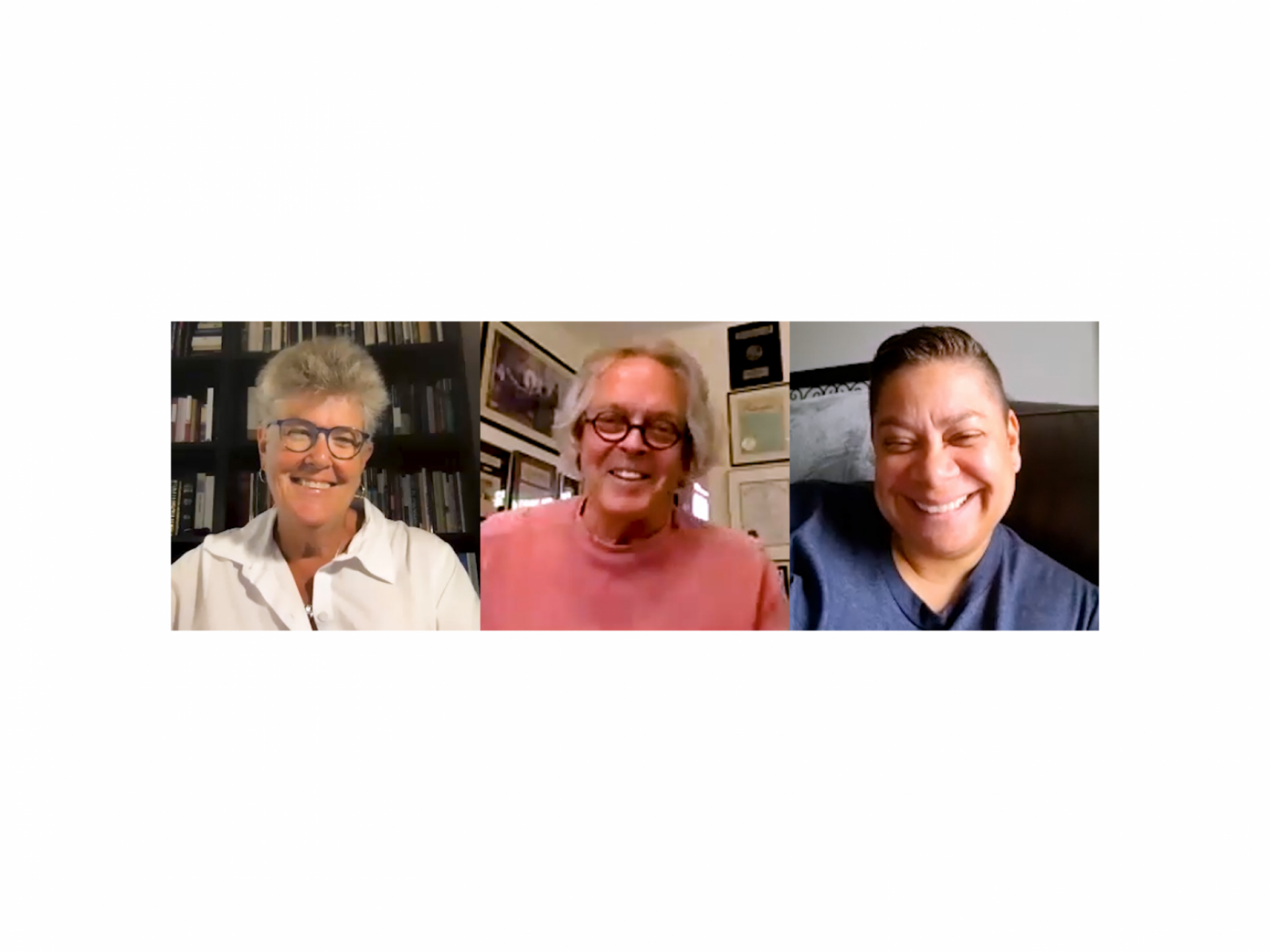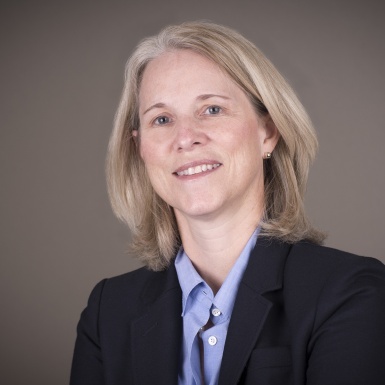Giving Voice to What Matters Most: Days Mush Together

Sign up and receive information on the latest news and updates.
UsAgainstAlzheimer’s series “Giving Voice to What Matters Most”— features the stories of people who are living with dementia or at high risk for the disease. Tracey Lind, Greg O’Brien and Daisy Duarte recently met by Zoom to talk about issues that are important to them. By sharing their experiences, they hope to reduce stigma and misconceptions about dementia, and empower others to speak freely and live life to the fullest. In this episode, Tracey, Daisy and Greg talk about how they manage day to day, including during the COVID-19 pandemic.
Tracey Lind: In some ways it’s easier because we’re really in control of life. But it’s harder because the days all kind of mush together. I think for me it’s trying not to do too much. Zoom meetings are a lot harder than being in person. Zoom preaching is harder than preaching in person.
What I’m learning is that when I take on too much – too much isn’t a lot compared to what my life used to be like – my brain gets really messed up. The best way I know how to describe it – I don’t have Alzheimer’s, so I don’t know what Alzheimer’s feels like – but other people with FTD seem to agree when I say my head feels full. And my language falls apart. And then I get really out of sorts and really emotional.
And I think that’s one of the things with COVID is, for example, just yesterday we walked down the corner to watch the Cleveland Heights graduating class have a car parade driving down Lee Road in their cars. And everybody honking and cheering the graduates. And I just sat there crying. I’m not emotional like that, but I can’t help it anymore. I just kind of keep having to reset over and over again. But every reset gets harder. And I was doing so well – so well that people didn’t think I had dementia. And then I didn’t think I had it. And now, okay, I’m reminded I have it again. It’s like it came back to visit.
Daisy Duarte: I’ll be honest with you. Since I’ve been told that I have the mutation and I’m guaranteed to have it at the age of 65, I don’t think about it. I don’t think about the disease attacking me because I have faith. I’m in a clinical trial. I have faith that it’s going to work. I have faith that it is working because we have proof that it is working. So now they opened it to more people in the study. You’ve got to have faith and you’ve got to believe that God’s going to be there with you. Without faith you’re not going to get anywhere. And I think that’s what gotten me these ten years with my mom is all the faith that I have.
I start off every morning the first thing I do is kneel down at the end of my bed and I pray for an hour. I give an hour of meditation to the Lord. I speak to Him. He speaks back to me. I always make it a habit of an hour. My day starts off talking to Him every single day and ends with talking to Him. You’ve got to have faith. If you don’t have faith you don’t have nothing – no ground to stand on especially with a disease like this. Cause you feel useless, you feel worthless if you’re caring for someone or if you yourself have the disease.
Greg O’Brien: I wrote this down when Tracey said it because it’s so accurate. The days are mushing together. And they are for me. What day is it? What’s the next day? Not sleeping. So, I rely on copious lists. As a journalist, my training in journalism has helped me maneuver through this because I write everything down, take copious notes, and you stick to it. So, I try to do that.
The other thing I thought of, sometimes when you try to do too much, and I keep saying this to myself, stay in your lane. And don’t complain about what you can’t do. In my case there’s a lot I can’t do anymore. But God gave me the gift of writing.
So that’s what I try to do. I don’t try to focus on the bad stuff. There’s enough bad stuff around me. I try to focus on okay, what can I do with this gift that God gave me? I don’t know if that makes sense.
Tracey Lind: It makes a lot of sense to me. You have these gifts and you want to use them. And the thing is it takes a lot longer and it’s a lot harder to use them. I don’t know about you guys, right now I keep forgetting things. I forget to wash my hands. I forget to wear my mask. I forget to not yell at someone who isn’t wearing a mask. I forget to not get close to people. I forget to not put my fingers in the pie, or not to reheat my coffee by pouring it back into the pot. We have Post It notes and a label maker that’s like my best friend. We put labels everywhere that remind me of what I need to do. Like wash your hands, wash your hands, wash your hands. Don’t put your fingers in the pie.
Daisy Duarte: I wake up in the morning and the first thing I do is pray. And then after that everyone is still sleeping, the gym, I literally have a membership right around the corner from my house. Walking is 2 minutes and car is five seconds. So, I go around the corner and work out for an hour to an hour and a half. Then Tuesdays, Thursday and Saturdays I run a trail – 4-5 miles.
Tracey Lind: You’re not scared going to the gym?
Daisy Duarte: No. The gym I go to doesn’t have many members. I go from 6-7 am and there’s never a person in there. Before I use a machine and after I use a machine, I wipe it down.
Tracey Lind: I’ve been spending a lot of time outside every day. We decided to put in a beautiful garden. And we decided to go for it because my wife Emily wanted to make sure I could participate in putting it in and making decisions. So, we did it all. And I spend so much time there it’s unbelievable soaking up the beauty.
UsAgainstAlzheimer’s “Giving Voice to What Matters Most” series is made possible thanks to the generous support of Shawn Taylor and KPB Corporation.
